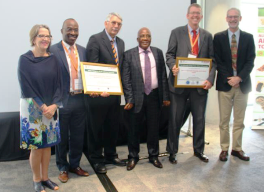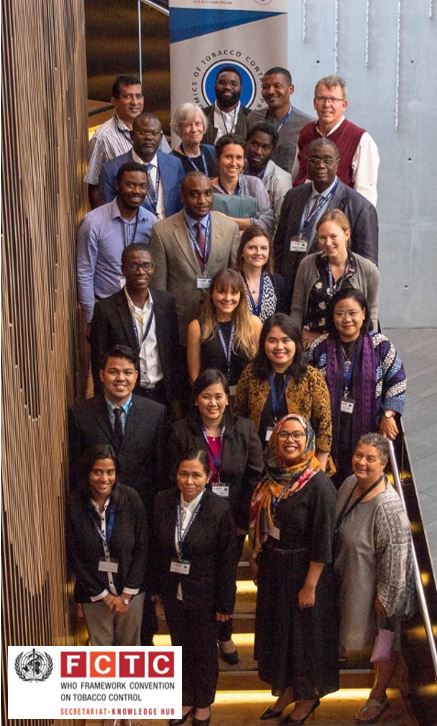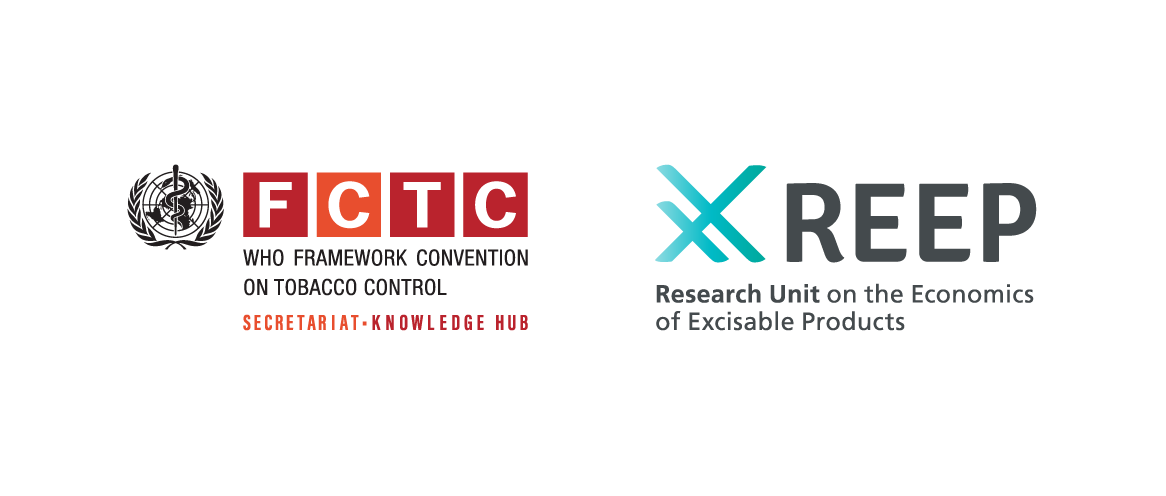In 2015, REEP (formerly the ETCP) was approached by the South Africa National Department of Health to establish a Knowledge Hub on tobacco taxation and illicit trade - on behalf of the World Health Organization (WHO) Framework Convention on Tobacco Control (FCTC) Secretariat. The nomination to fulfil this role was primarily due to the REEP team’s extensive experience in the economics of tobacco control, dating back to the mid-1990s. Establishing the WHO FCTC Knowledge Hub on Tobacco Taxation illustrates South Africa’s support of the WHO’s FCTC, and its leadership within the realm of tobacco taxation.

While we have much experience in estimating the size of the illicit market, we do not at this point have the technical expertise to advise government officials on the technicalities of how to reduce illicit trade, e.g., through track-and-trace systems. In 2022, at the request of the WHO FCTC Secretariat, we removed the “and Illicit Trade” from the name of the Knowledge Hub, and thus the focus is now primarily on tobacco taxation.
The aim of the Knowledge Hub is to support parties from around the globe, especially those in low- and middle-income countries, to implement better tobacco excise tax structures, to raise the excise tax, and/or to curb and measure illicit trade. The WHO recommends that countries impose a total tax burden (excise, VAT and import taxes) of 70% on cigarettes. Few countries have reached this recommendation, so there is much work to be done globally.

The Knowledge Hub envisages two primary modus operandi for supporting parties: 1) knowledge dissemination and training, and 2) technical support. The Knowledge Hub will provide workshops and training to government officials (and possibly employees from civil society organisations) from a variety of countries on a specific topic: for example, how to design an efficient tobacco tax system, how to measure the size and/or trends in illicit trade in tobacco products, or how to model the likely impact of a change in the excise tax on tobacco consumption, smoking prevalence and tax revenue.
It will also provide information and technical support to individual countries on issues related to tobacco taxation and/or illicit trade. This will often take the form of assistance in the development and implementation of priority projects that are initiated as part of the Knowledge Hub’s workshops/training programmes. Rather than simply offering parties a means to outsource technical expertise, the Knowledge Hub will focus on building capacity - helping governments develop the internal capabilities in the areas of taxation and illicit trade.
For more information please contact Zunda Chisha (Programme Director) or Sam Filby (Tobacco Taxation Manager).
To visit the Knowledge Hub website, please go to:
https://extranet.who.int/fctcapps/fctcapps/fctc/kh/tobacco-taxation
The Knowledge Hub in Cape Town forms part of a global network of seven WHO FCTC Knowledge Hubs, each of which has a different area of expertise.

